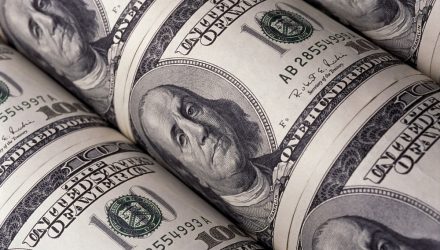By Matthew Bartolini, Head of SPDR Americas Research
Fixed Income ETFs have attracted over $10.4 billion of inflows in April as of Thursday’s close—significantly outpacing their equity counterparts, which have seen inflows of just $1.3 billion to start the second quarter.
There is elevated macro risk as result of the ongoing trade rhetoric and the questions that creates. Particularly, how that impacts the trajectory of the global economy as well as how the Federal Reserve may conduct monetary policy in the future, this is evident in the Fed’s latest meeting minutes where trade and fiscal issues garnered more attention than in the past.
In this type of environment where equity implied volatility (VIX) is in the 86th percentile over the past year, investors have sought out to buffer equity risk in their portfolios. This has led to over $10 billion of inflows into Fixed Income ETFs to just $1 billion in equities.
At the fixed income sector level, nearly $7 billion has been to Government or Agg sectors, two of the more negatively correlated bond areas to equities, underscoring the risk balancing act investors are walking right now.
Related: 4 Fixed Income ETFs Pulling Big Money in 2018
Within equities investors continue to travel overseas as fundamentals, valuations, and policy risk are more supportive. Within the US, tech remains the most favored sector even in light of the stock specific issues (e.g. Facebook) in the sector, as we are on the cusp of earnings season and that is one sector that has positive earnings sentiment.
Further to that point on balancing risk, in April the inflows into credit oriented sectors combined with muted inflow into equities point to investors trading equity for credit risk, and because yields have backed up, getting paid to wait until the dust settles.
Investment grade credit funds have taken in $2 billion and high yield ETFs are looking like they will break the streak of 5 consecutive monthly outflows, as in April they have taken $1.1 billion.

